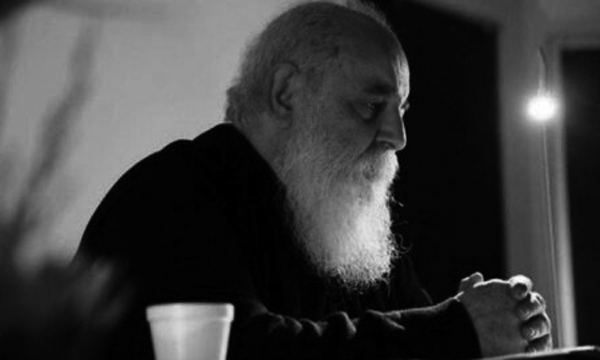
[UPDATED Aug 10, 2022]
Ebtehaj, Houshang (Rasht, 25 Feb. 1928 – Köln, 10 August 2022), alias H. E. Sayeh. Modernist poet and famous ghazal-writer of contemporary Iran, songwriter and musician, and scholar in the field of critical studies of Hafez.
Bio Brief:
He was born to a distinguished and well-known family. His father, Mirza Aqa Khan, the son of Ebtehaj al-Mulk, was originally from Garakan, Tafresh, and his mother, Fatima Rifa’at, the daughter of Rifa’at al-Mamalik, was of Shirazi and Isfahani descent. He completed his elementary and secondary education up to the fourth year of high school at the Ansari, Qaani, Luqman and Shahpour schools of Rasht, and spent his fifth year of high school at Tamadon High School in Tehran. 1939 marks the first sparks of his poetic talent and passion for music. 1946 to 1951 laid the foundations for his acquaintances, friendships and communication with the traditional and modern poets of his day, along with renowned music maestros, including Mehdi Hamidi Shirazi, Nima Youshij, Mohammad-Hossein Shahriar, Fereydoun Tavallalli, Forough Farrokhzad, Nader Naderpour, Fereydoun Moshiri, Sohrab Sepehri, Mehdi Akhavan Sales, Abolhasan Saba, and Ahmadi Ebadi. In 1954, he was employed by the Tehran State Construction and Cement Company, and also began working with the thriving press of the time, including publications such as Sokhan, Kavian, Sadaf, Maslahat, and Payam Novin. He married Alma Mikial in 1958. In 1965 he travelled to Yerevan, Moscow, Leningrad, Tashkent, Samarkand, Bukhara, and Kiev. In 1969, he worked with Nader Naderpour, Galoust Khanents, and R. Ben to translate the poetry of the Armenian poet Tumanyan. Ebtehaj was appointed manager of the Iranian Music Department at the National Radio of Iran in 1972. The traditional music programmes “Fresh Flowers” and “Selection of the Week” are testament to his diligent work on Iran’s national radio. He travelled to Almaty, Kazakhstan in 1973 in order to attend the Conference of Asian, African and Latin American Writers; in the same year, accompanied by Gholam-Ali Ra’di Azarakhshi and Sadeq Chubak, he attended the Asian, African and Latin American Poetry Congress in Iran. Ebtehaj founded the musical ensemble Sheida in 1974 in collaboration with Mohammad-Reza Lotfi, and in 1975 he, Lotfi, Hossein Alizadeh and Parviz Meshkatian founded the group Aref on the National Radio of Iran. In 1978 he and the members of the two groups resigned from the radio, and a year later, in collaboration with Mohammad Rezaltafi, Hossein Alizadeh, Parviz Meshkatian, and members of the Sheida and Aref groups, he set out to establish the Chavosh Center. Ebtehaj was arrested in the spring of 1983 on charges of involvement with the Tudeh Party of Iran, and was imprisoned for about a year.
Ebtehaj and Hafez
Long familiar with the poetry of Hafez and also with his ghazals, Ebtehaj was now very well-acquainted with the great poet’s work, and after his release from prison he set his hand to gathering multiple versions of his poems, and finally to reconciling and critically correcting them. He emigrated to Germany in 1987 and settled in Cologne, where he immersed himself in poetry and his own research into the critical study of Hafez’s Divan. Hafez, by Sayeh, published as a handsome quarto edition in 1994,was the culmination of ten years of scholarly and artistic reflection by Ebtehaj, focusing specifically on producing critical editions of Hafez’s work. With the publication of Hafez, by Sayeh, Ebtehaj, a poet and musician, emerged among literary masters and lovers of Hafez alike as a scholar in the field of Hafez studies. Subsequently, Ebtehaj began to be invited to Western academic and cultural societies (including in London, Paris, and various cities in the United States and Canada) to speak about Hafez’s poetry, and his methods of compiling and editing the poet’s work.
Biblio Brief:
- The First Songs [نخستین نغمهها], poetry collection with introductions by Mehdi Hamidi Shirazi and Abdolali Taati, Taati Publishing Company, Rasht, 1946;
- Mirage [سراب], poetry collection, Safi Ali Shah Publications, Tehran, 1951;
- Bleak Travails 1 [سیاه مشق یک], poetry collection with notes by Morteza Keyvan, and an introduction by Mohammad Hossein Shahriyar, Amirkabir Publications, Tehran 1954;
- Bleak Travails 2 [سیاه مشق دو], poetry collection, Zaman Book Publishing, Tehran, 1977;
- Bleak Travails 3 [سیاه مشق سه], poetry collection, Toos Publications, Tehran, 1985;
- Bleak Travails 4 [سیاه مشق چهار], poetry collection, Cheshm and Cheragh Publications, Tehran, 1992;
- Hafez, by Sayeh [حافظ به سعی سایه], first edition, quarto, Cheshm and Cheragh Publications, Tehran, 1994;
- Tasian (‘Dispirited’) [تاسیان], poetry collection, Karnameh, Tehran, 2006.
References
Azimi, Milad, and Atefeh Taieh. Pir-e Parnia- Andish: In Conversation with Sayeh. [پیر پرنیان اندیش: میلاد عظیمی و عاطفه طیه در صحبت سایه], (two volumes), Sokhan Publications, Tehran, 2012.
Abdollahi, Mahnaz. َAnnals of the Life and Works of H. E. Sayeh [سالشمار زندگی و آثار ه. الف. سایه], Bukhara, No. 60, (2007), pp. 13-21.


Leave a Reply